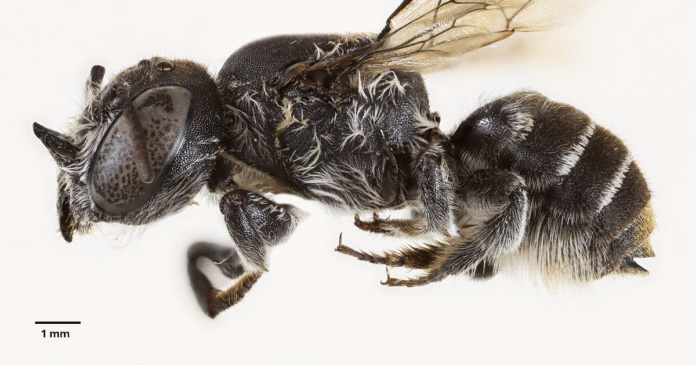As if deadly snakes, spiders and sharks were not enough, Australia now has a new creepy critter: a “lucifer” bee with devil-like horns.
The species, dubbed Megachile (Hackeriapis) lucifer, was found in the state of Western Australia, Curtin University announced on Tuesday.
Kit Prendergast at the university’s School of Molecular and Life Sciences discovered the bee while surveying a critically endangered wildflower in 2019 and was immediately drawn to the insect’s unique appearance.
“The female had these incredible little horns on her face,” she said.
A fan of the Netflix TV show “Lucifer,” she said the name was the perfect fit for the bee’s distinctively devilish appearance.
Curtin University School of Molecular and Life Sciences
Prendergast said DNA barcoding confirmed the new species didn’t match any known bees in DNA databases. She also said the specimens she retrieved did not match any in museum collections.
“It’s the first new member of this bee group to be described in more than 20 years, which really shows how much life we still have to discover,” Prendergast said.
She added that she hopes the discovery will raise awareness about the number of undiscovered species that could still be out there, especially in areas threatened climate change and mining.
“Many mining companies still don’t survey for native bees, so we may be missing undescribed species, including those that play crucial roles in supporting threatened plants and ecosystems,” she said.
“Without knowing which native bees exist and what plants they depend on, we risk losing both before we even realize they’re there.”
Almost all flowering plants depend on wild pollinators, particularly bees, but habitat loss and climate change are driving many vital species to the brink of extinction.
Curtin University noted the publication of the research coincides with Australian Pollinator Week, which highlights the crucial role bees in maintaining healthy ecosystems.
The new research was published in the Journal of Hymenoptera Research.
